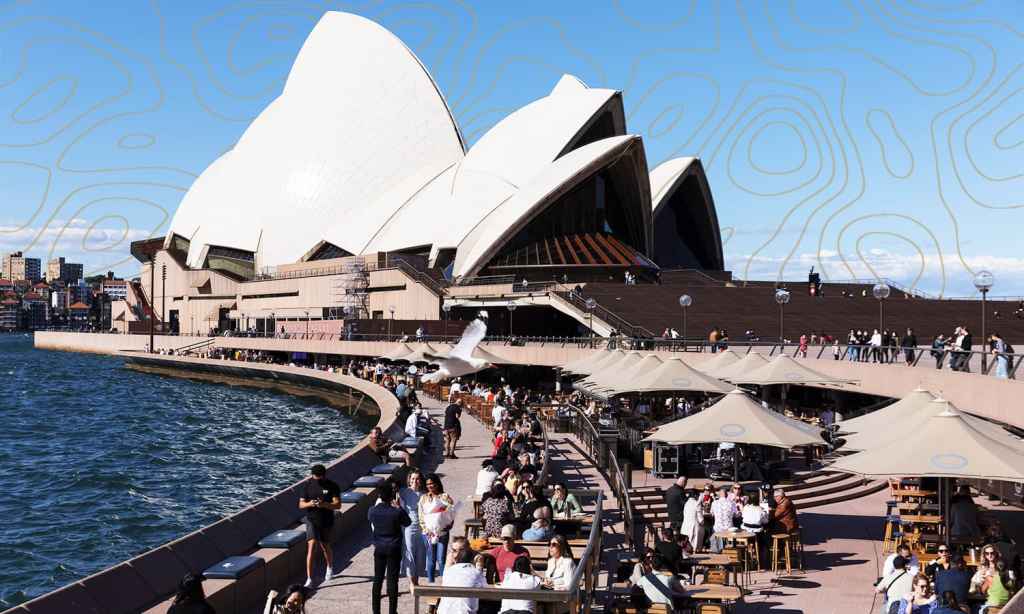After months of limited restrictions put in place to deal with soaring case numbers, punters will be able to sing and dance one again in NSW.
NSW Premier Dominic Perrottet announced on Thursday that the restrictions would be repealed early, with the new freedoms coming in from tomorrow, Friday, 18 February.
Perrottet said that his Government would continuing to adopt a “flexible and measured approach” to protecting the community and the healthcare system.
“We don’t want restrictions in place for any longer than necessary,” Perrottet said.
“With hospitalisation and ICU rates trending downwards now is the right time to make sensible changes.”
“As we continue to move forward out of the pandemic we are ensuring that we keep people safe and people in jobs so life can return to normal as quickly and safely as possible.”
Perrottet praised frontline health staff for their work during the recent COVID wave and encouraged everyone who is eligible to get boosted as soon as possible.
Deputy Premier Paul Toole has said that the NSW Government has worked hard to “strike the right balance” between re-opening the State and keeping everyone safe.
”Regional communities have already welcomed back visitors with open arms, and these further freedoms are a big win for everyone who has done the right thing to get us this far,” Toole said.
“This measured response will reinvigorate our regional communities, with country shows, festivals, and other major events able to return bigger than ever.”
Minister for Health Brad Hazzard said that everyone needs to play their part to deal with with the challenges the pandemic will continue to throw up.
“As we are moving more into the endemic stage of the COVID-19 pandemic, these changes are giving us more of our old life back but it still makes a lot of sense for us all to be cautious,” Hazzard said.
“The best outcome is still to avoid getting the virus by protecting yourself, your family, and the broader community.”
However, NSW cases, as well as cases across the country, have begun once again to rise in the past few days, leading questions over if now is the right time to lift the restrictions. The restrictions, put in place at the start of the year, were extended and expected to last until March.
Hospitalisations, deaths, and ICU numbers however have remained below what NSW modelling predicted as best-case scenarios, prompting the early changes.
NSW COVID Restriction Changes
The repealing of restrictions will happen in stages, one week apart.
So, from tomorrow, Friday, 18 February there will be:
- No density limits in hospitality or any other venues, scrapping the current one person per two square metre rule.
- No QR check-ins in any venues or retail outlets, except for in nightclubs and music events with more than 1,000 people. Hospitals, aged and disability facilities will also continue to use check-in systems.
- Singing and dancing will return at all venues, except for music festivals.
- Recommendations to work from home will no longer be made and the decision will be left to the employer’s discretion.
The second stage of the restrictions will come in on Friday, 25 February. They are:
- Masks will only be required on public transport, planes, and indoors at airports, hospitals, aged and disability care facilities, corrections facilities, and indoor music festivals with more than 1,000 people.
- Masks are however still encouraged for indoor settings where individuals cannot maintain a safe distance from others. Customer-facing retail staff will also be required to continue wearing masks.
- The 20,000 person cap on music festivals will be removed, with singing and dancing permitted. Vaccination requirements will however remain for indoor music festivals over 1,000 people.
NSW has also announced the return of non-urgent elective surgeries from next week which were suspended in January. Patient waiting lists for elective surgeries in the state have climbed to almost 100,000, with more than 6500 patients now overdue for non-urgent operations.
Read more stories from The Latch and subscribe to our email newsletter.







